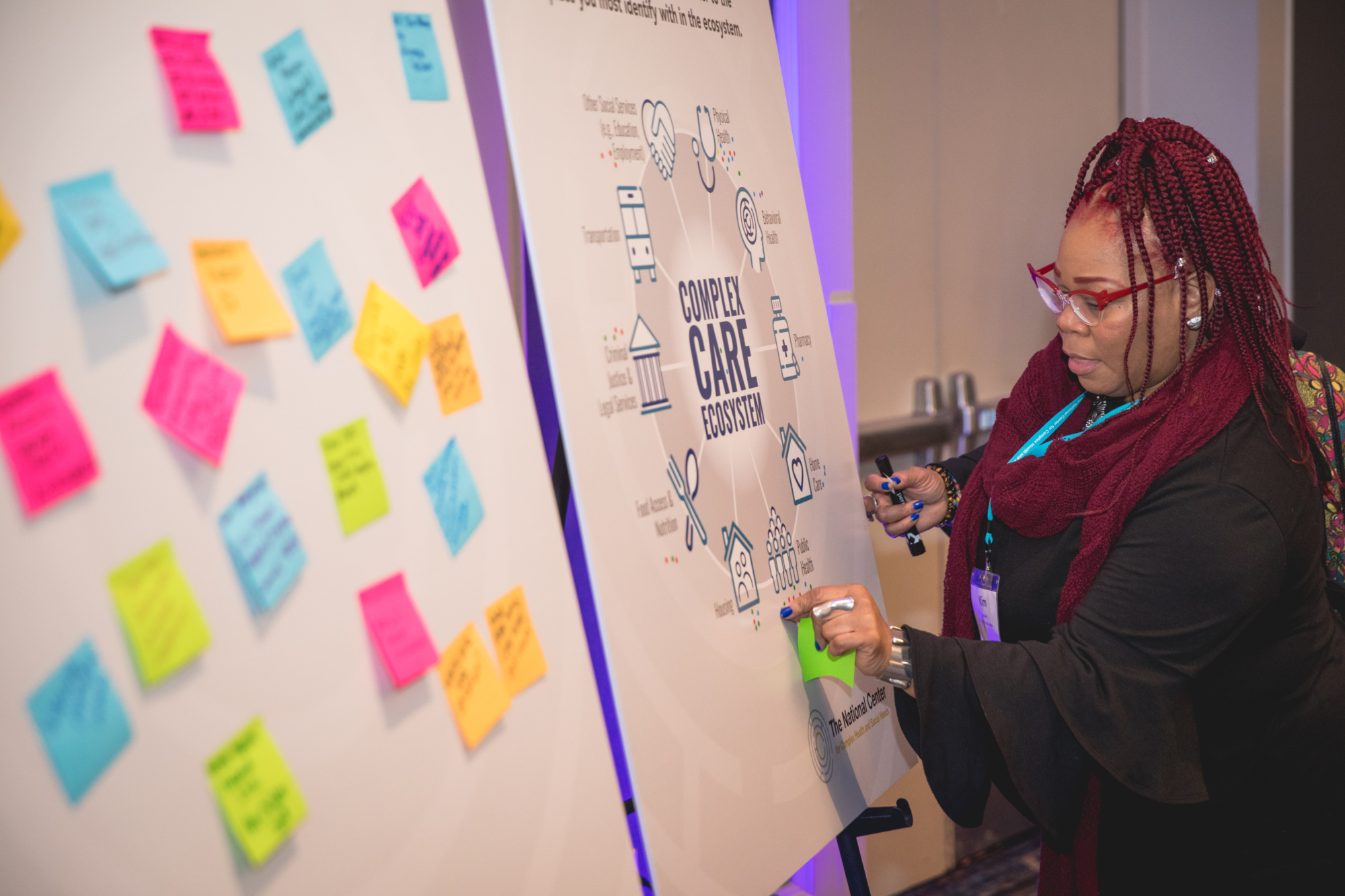
INSPIRE: A national strategy to advance community partnerships in healthcare
Building the complex care field Community & consumer engagement Strengthening ecosystems of care

Issue
Building impactful, equitable, and mutually beneficial partnerships with community members and people with lived experience (PWLE) is an ethical imperative for healthcare. While there has been growing interest among healthcare organizations to engage community members and PWLE, many lack clear best practices for building and sustaining these partnerships.
Project goal
Develop a national strategy for authentic community engagement in healthcare and create tools, resources, and learning and coaching models that will meet the varied needs of healthcare stakeholders and PWLE to advance meaningful partnerships in their communities.
Core team partners
Organizations:
- Camden Coalition
- Center to Advance Consumer Partnership
- PFCCpartners
- Institute for Patient- and Family-Centered Care
- Community Catalyst
Individuals with lived experience
- Alan Coker
- Burt Pusch
- Carlos Benavides
- Laura Carroll
- Rebecca Esparza
- Savina Makalena
- Stephanie Burdick
Background
The Camden Coalition, the Commonwealth Care Alliance and its Center to Advance Consumer Partnership, PFCCpartners, the Institute for Patient and Family Centered Care, and Community Catalyst are all national organizations deeply committed to advancing partnerships with community members/PWLE.
Our collective work includes building meaningful community partnerships within our own organizations as well as supporting the growth of healthcare organizations’ capacity to build and sustain their own community engagement work.
We are able to do this work due to the relationships we each have with community members/PWLE.
Community engagement and partnership work with PWLE has always been a core value of the Camden Coalition. To ensure that health and social care programs understand, respond to, and meet the needs of individuals and their communities, we believe that PWLE must be equal partners in the work.
Several important advancements in the national community engagement landscape have been important precursors for this project. In 2022, the National Academy of Medicine (NAM) released “Assessing meaningful community engagement: A conceptual model to advance health equity through transformed systems for health” (NAM, 2022), the first product to come from their extensive work with a national expert Organizing Committee. In addition, the Center for Medicare and Medicaid’s announced a new requirement for health insurance companies that offer Dual Eligible Special Needs Plans (plans that serve people eligible for both Medicare and Medicaid) to establish and maintain an enrollee advisory committee (Hafner and Fish, 2022).
Given the significance of these new resources and requirements, there is a window of opportunity to support the healthcare field by identifying and codifying the best practices for building community partnerships, as well as by creating tools and resources for organizations and community members/PWLE to translate these practices into action — together.
Project design
This project, which we are calling INSPIRE (Initiating National Strategies for Partnership, Inclusion, and Real Engagement) will include two phases: Phase 1 will involve a 12-month strategic planning and research period during which the Core Team will collectively:
- assess the current state of community engagement work nationwide;
- identify best practices through a series of focus groups and/or interviews with key stakeholders including PWLE who are engaged in work as advisors/advocates;
- articulate a value proposition for community members/PWLE to become engaged in this work; and
- create a business case/financial framework for partnerships between healthcare and community members/PWLE, including identification of reimbursement pathways to support the financing and sustainability of such work for organizations.
At the end of phase 1, we will produce a comprehensive report that summarizes the current state of community engagement work in healthcare, the desired future state based on identified best practices and key opportunity areas, and, most importantly, a roadmap for how the field can close this gap — including the financial and policy levers that can create accountability and incentives for adoption of this work across healthcare.
In phase 2 of this project, we hope to focus on translating phase 1 findings and outputs into tangible products and opportunities to drive widespread adoption of effective community engagement and partnership strategies across healthcare.
These may include toolkits, implementation tools, case studies, learning communities, and targeted technical assistance offerings and training products. The content of these will be determined by our findings in phase 1.
This project launches in May 2023, with phase 1 concluding in April 2024.
For more information, please contact:
Evelyne Kane
Associate Program Director, Community Engagement & Capacity Building
[email protected]
Taylor Brown
Program Manager, Community Engagement & Capacity Building
[email protected]
Core team partners: People with lived experience


Burt Pusch

Laura Carroll

Rebecca Esparza

Savina Makalena

Stephanie Burdick
Related blog posts
Are we speaking the same language? Defining what we mean by “community engagement”

You can’t advance health equity without effective community engagement
Building the complex care field Community & consumer engagement
Related resources



A new roadmap for effective community engagement in healthcare
Learn key findings and insights from INSPIRE's Phase 1 final report in this webinar recording.
Community & consumer engagement Strengthening ecosystems of care Data sharing Education & training Policy & advocacy Quality improvement
A roadmap for effective community engagement in healthcare: Final report from INSPIRE Phase 1
Community & consumer engagement Strengthening ecosystems of care
The nine dimensions of authentic community engagement
Community & consumer engagement Quality improvement SDOH & health equity
In the news
One year later – INSPIRE 2.0
Partnership focused on community engagement launches INSPIRE project
Community & consumer engagement Strengthening ecosystems of care







